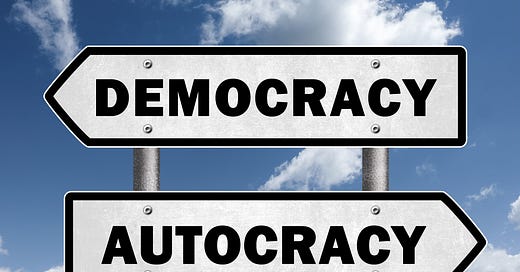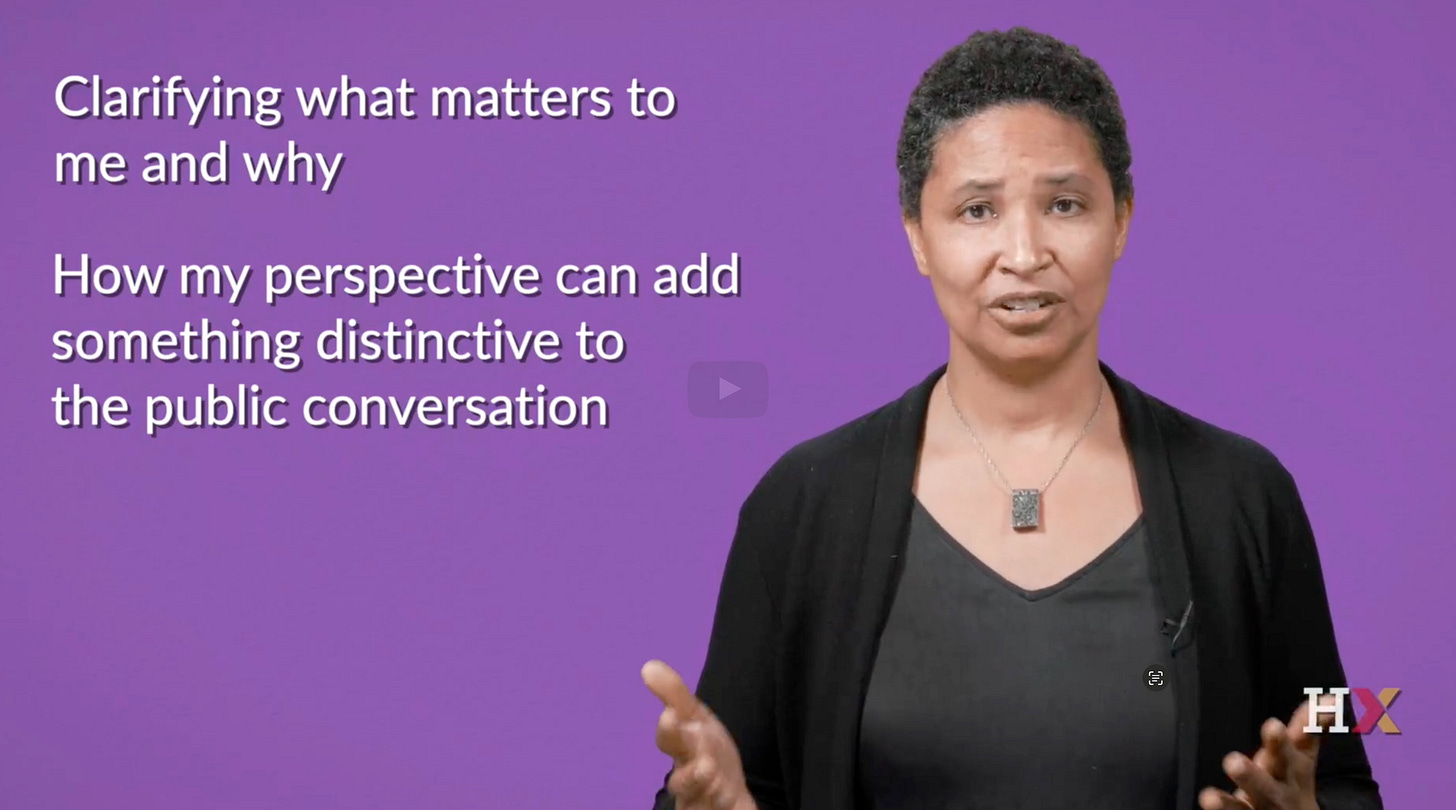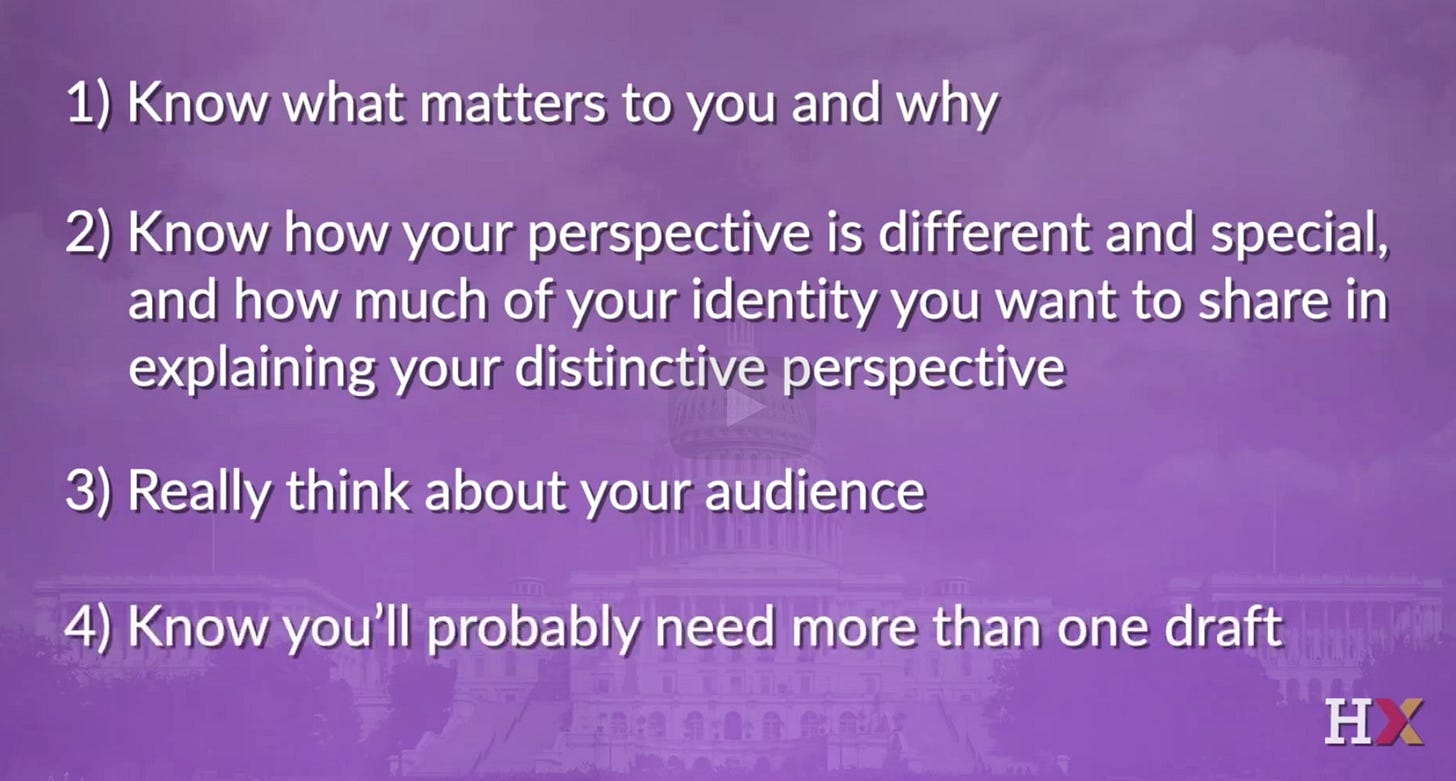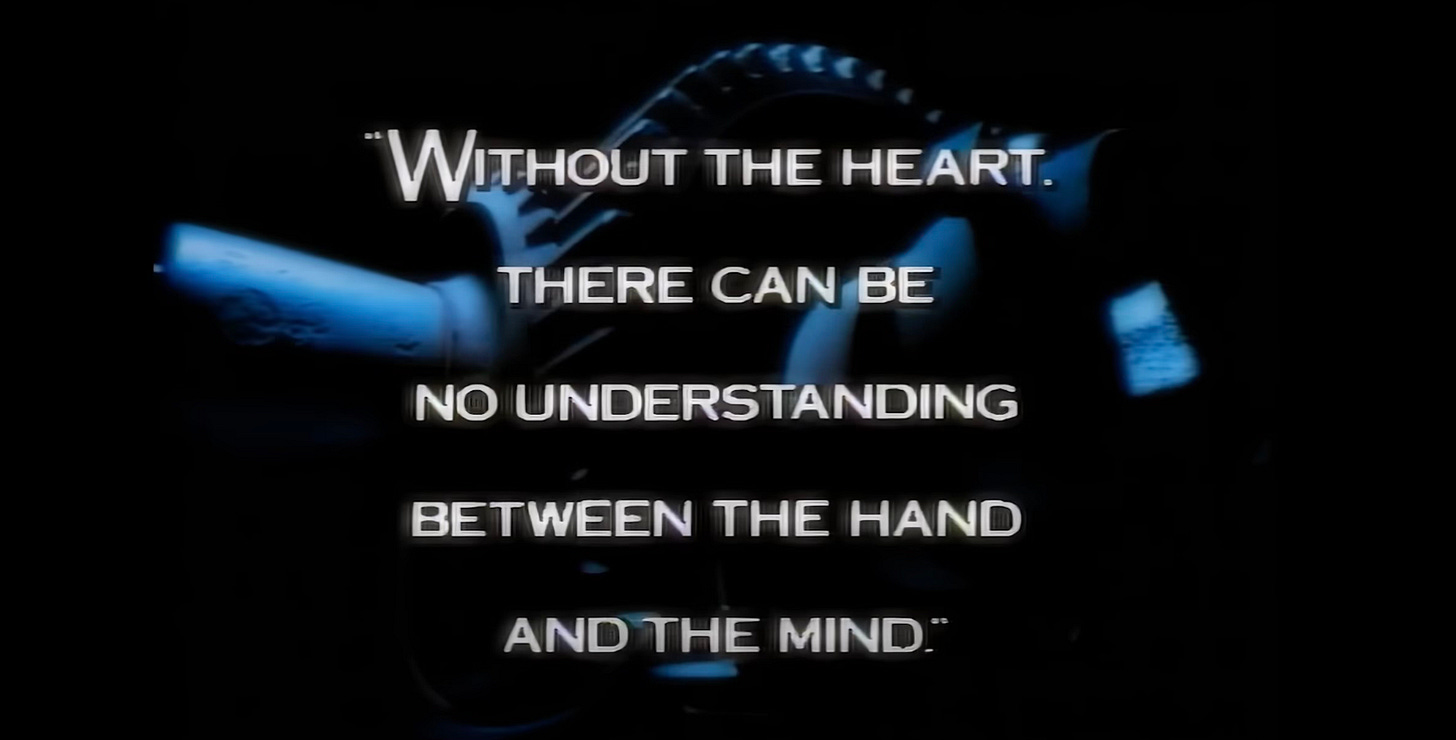Hi all,
I’m now on week 6 of Professor Danielle Allen’s course:
We the People: Civic Engagement in a Constitutional Democracy
This is an asynchronous course, and I’ve gotten a lot more out of it by paying for the “certificate track” which allows me to engage with the q and a scattered throughout. But you can audit for free!
Objectives this week:
How can I engage as a member of my local, national, and global community?
By the end of this section, you should be able to:
Determine how to you want to use your voice to engage your community;
Develop your capacity to use your civic voice to highlight issues that are important to you.
First off, gotta hand it to Stacey Abrams. She gives a masterclass on using her voice to inform and motivate others. This might be the best distillation of the march to autocracy that I’ve seen yet:
Stacey Abrams on Trump Pushing Our Country into Authoritarianism & Being a Black Woman in Politics
The 10 stages of the march to autocracy (which reads mostly as a summary of what’s happened since November 2024, and what was planned for years in Project 2025):
Winning an election.
Expand Executive Power.
Make Congress complicit and weak, and neuter the Judiciary.
Gut the civil service - break democracy. Fire all the people who know how to make the government work.
Put loyalists in place.
Break down communication. Criticize media and create your own echo chamber of propaganda.
Blame someone - DEI, immigrants, minorities. The vulnerable and the dispossessed.
Attack anyone who supports them. Law firms, NGO’s, colleges.
Encourage and incentivize private violence - this silences dissent. EG sending in Marines and National Guard.
Ban elections. Everyone’s afraid, poor, or complicit.
She credits Princeton Professor Kim Lane Scheppele and the Robert F. Kennedy (Sr- yeah his daddy was pretty cool) Foundation for these tips on fighting back:
Protest. Don’t forget that before we had power, we had each other. Check on your neighbors. Tell the truth. Don’t let propaganda win. Freedom of assembly includes friendship across difference. They win when we’re too afraid or numb (or isolated) to act.
Mr. Trump is trying to propagate and clone his feeble mentality. Those who can’t control their distress try to control others. Perhaps we all feel safer with the familiar. Maybe we all wish we could be contagious and catch on in other people’s mind. To be unforgettable, I suppose, totally internalized and part of the air everyone has to breathe. But now that we’re all relating to Trump contagion - what do we do next? I’ve mostly been trying to disentangle myself, and become even more of a transformer and not transmitter of any form of toxicity.
EXPRESS YOUR PROTEST:
All Out Against ICE in Dublin, California
Start: Saturday, July 19, 2025•11:00 AM
Location: Don Biddle Park•Dublin Blvd & Columbus St, Dublin, CA 94568 US
RSVP online - and sign up for updates through Tsuru for Solidarity.
Here are some tips on writing your own Op Ed:
1. If you have not done so already, sum up your thoughts on the subject in a single declarative statement. This will become your thesis.
2. Think about your audience. What are some of their characteristics? How do you think they will respond to your message?
3. Write down two or three statements you will use to support your argument.
4. Think about your personal story and/or civic identity, and how they relate to your topic.
5. Think about the broader community or communities this topic affects.
6. Find evidence to support your claims. As you do, be careful to evaluate your sources for accuracy, bias, and currency of information (how recently it was published). Be sure to cite all sources.
7. Are you using your voice to stand up and be counted, or to raise awareness in order to drive change in public opinion? What do you want your audience to think or do? What do you want them to feel? Why? Are you trying to explain a complex issue to change the conversation, or are you making a call to action? What might be the consequences of inaction?
Perhaps you’d like to pen your own op-ed or letter to the editor! I’m still working on mine.
You will be evaluating your writing using the rubric for this assignment.
If you are a teacher who would like to assign the opinion piece here are two rubrics you might use: Rubric Version 1 | Rubric Version 2
Here are two examples of Pulitzer winners or finalists:
Jill Burcum, “Indian Schools: a Nation’s Neglect,” Nov. 23, 2014, Star-Tribune (Minneapolis)
EXPRESS YOURSELF!
Warmly,
Ravi
Madonna - Express Yourself (Official Video)









Thanks for including Stacey Abrams’ interview of the 10 stages of DJT’s aggressive march pushing for autocracy and the importance of both protest and compassion for our suffering and the sum of our love for each other for democracy to survive.